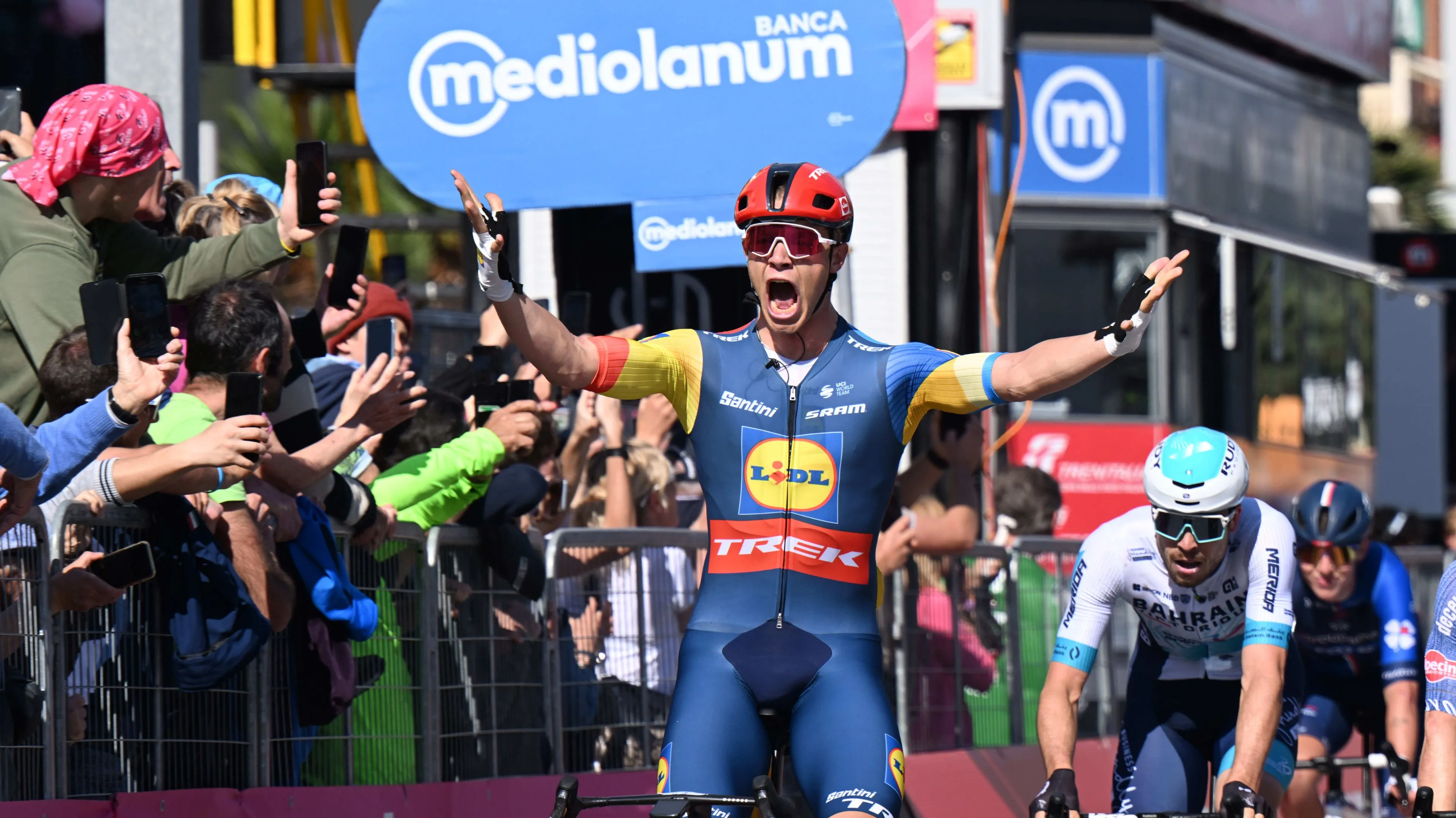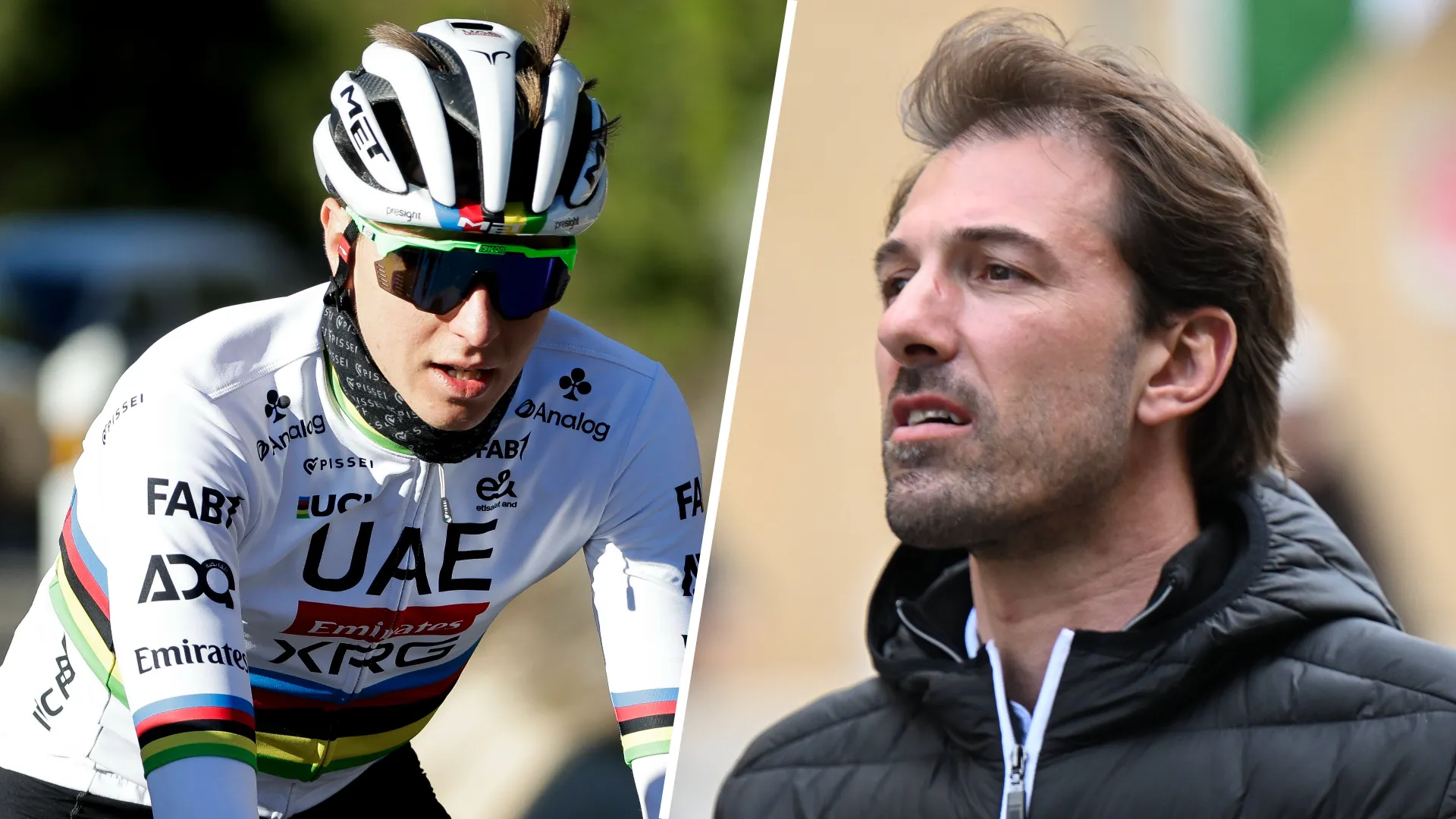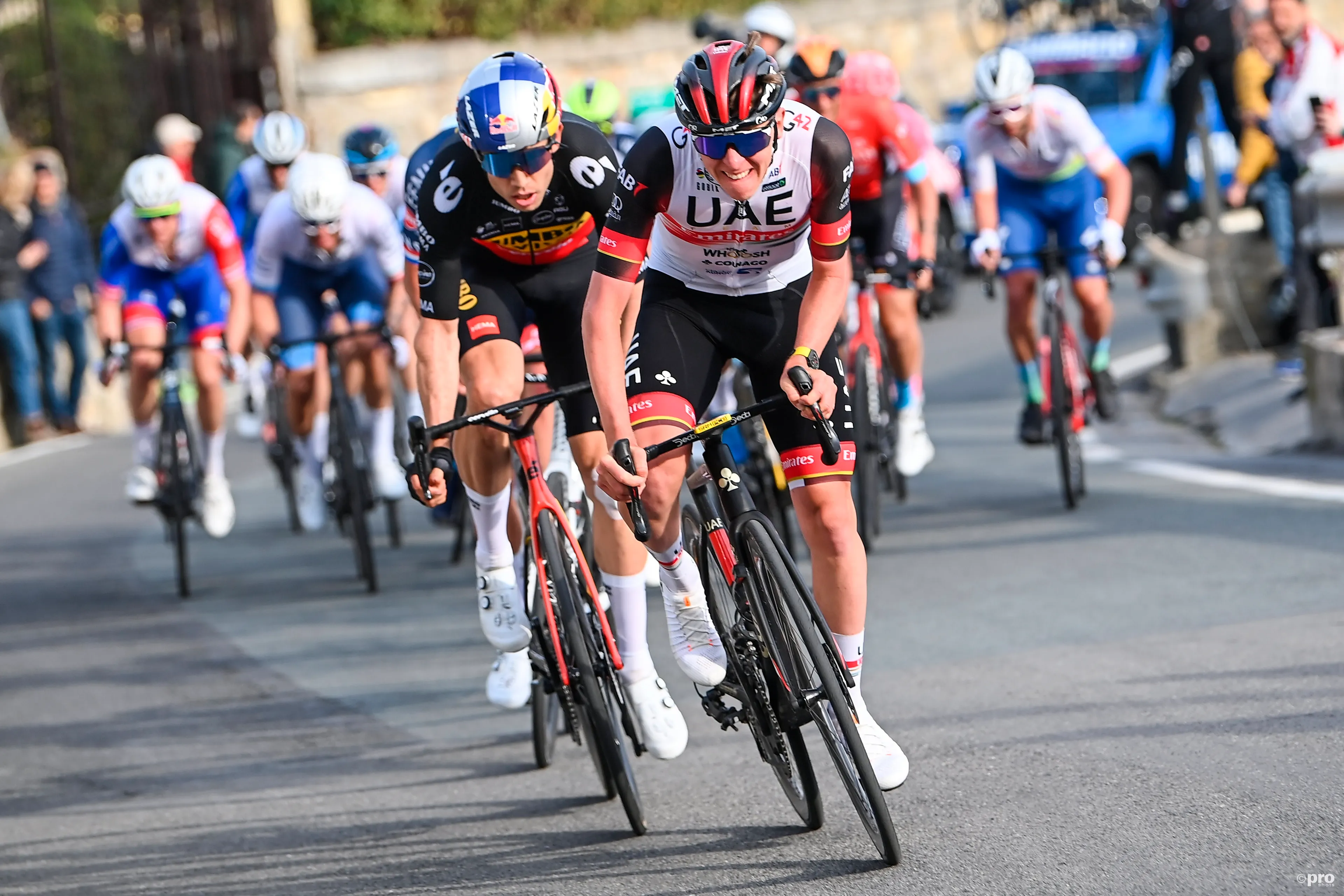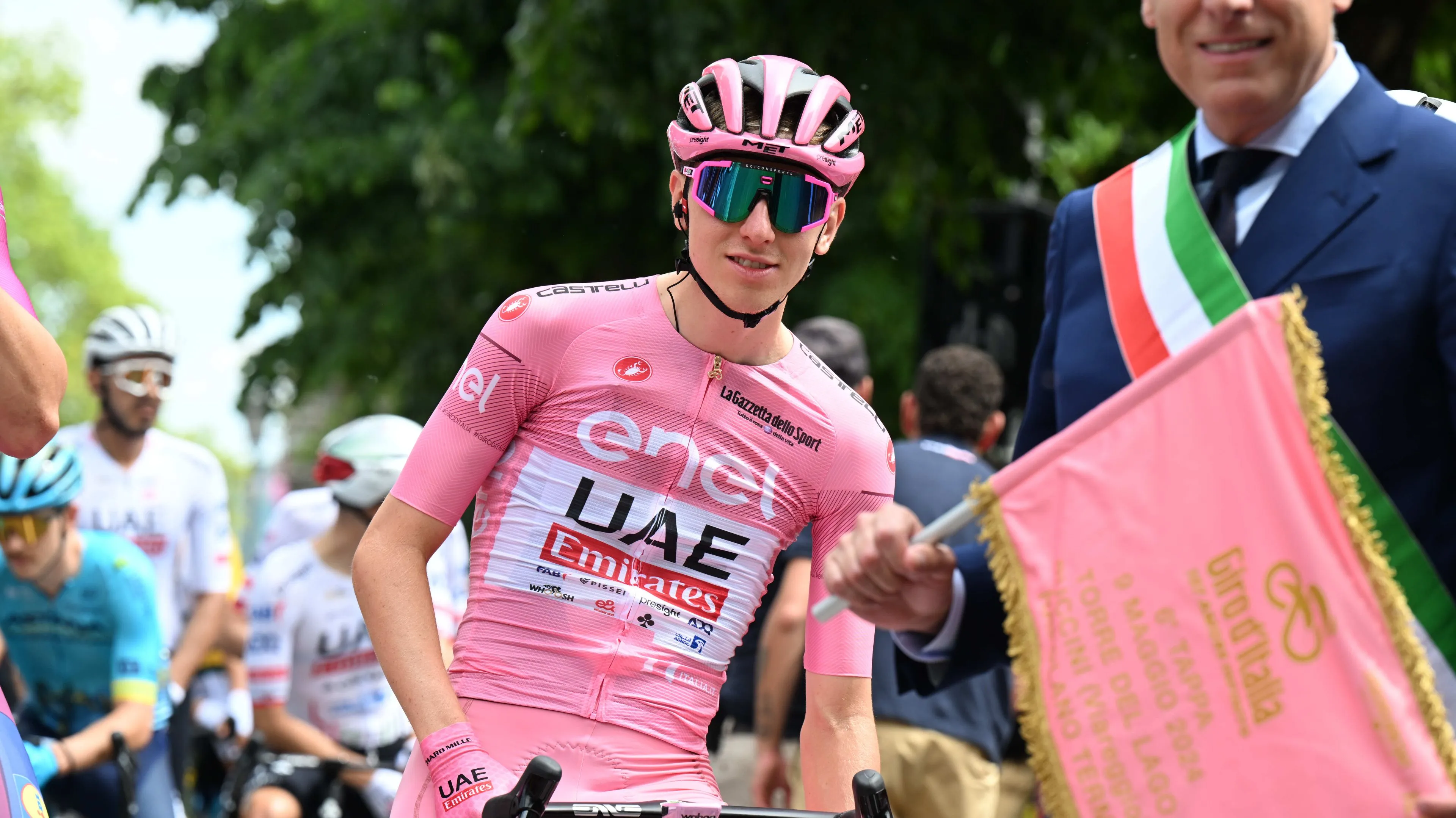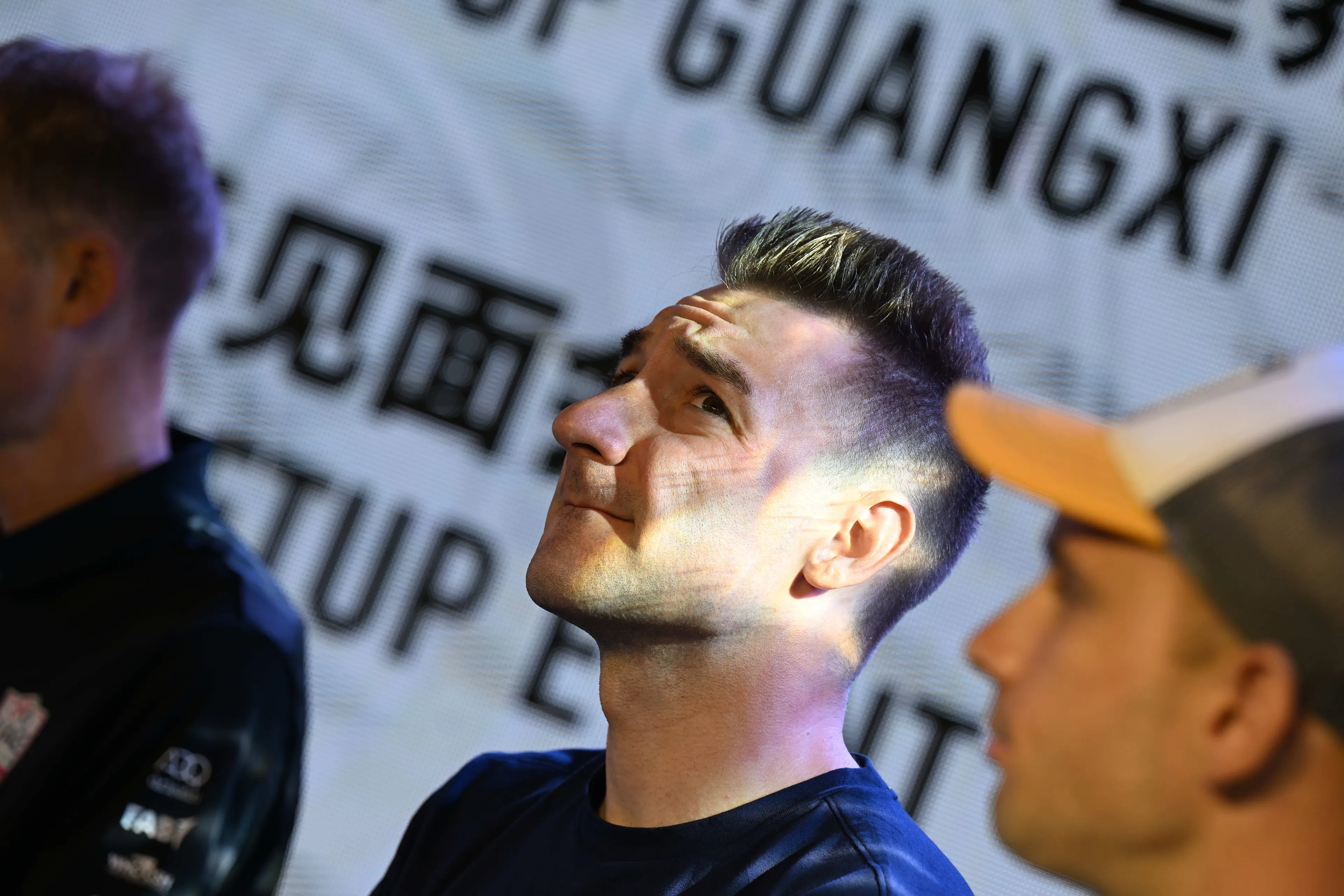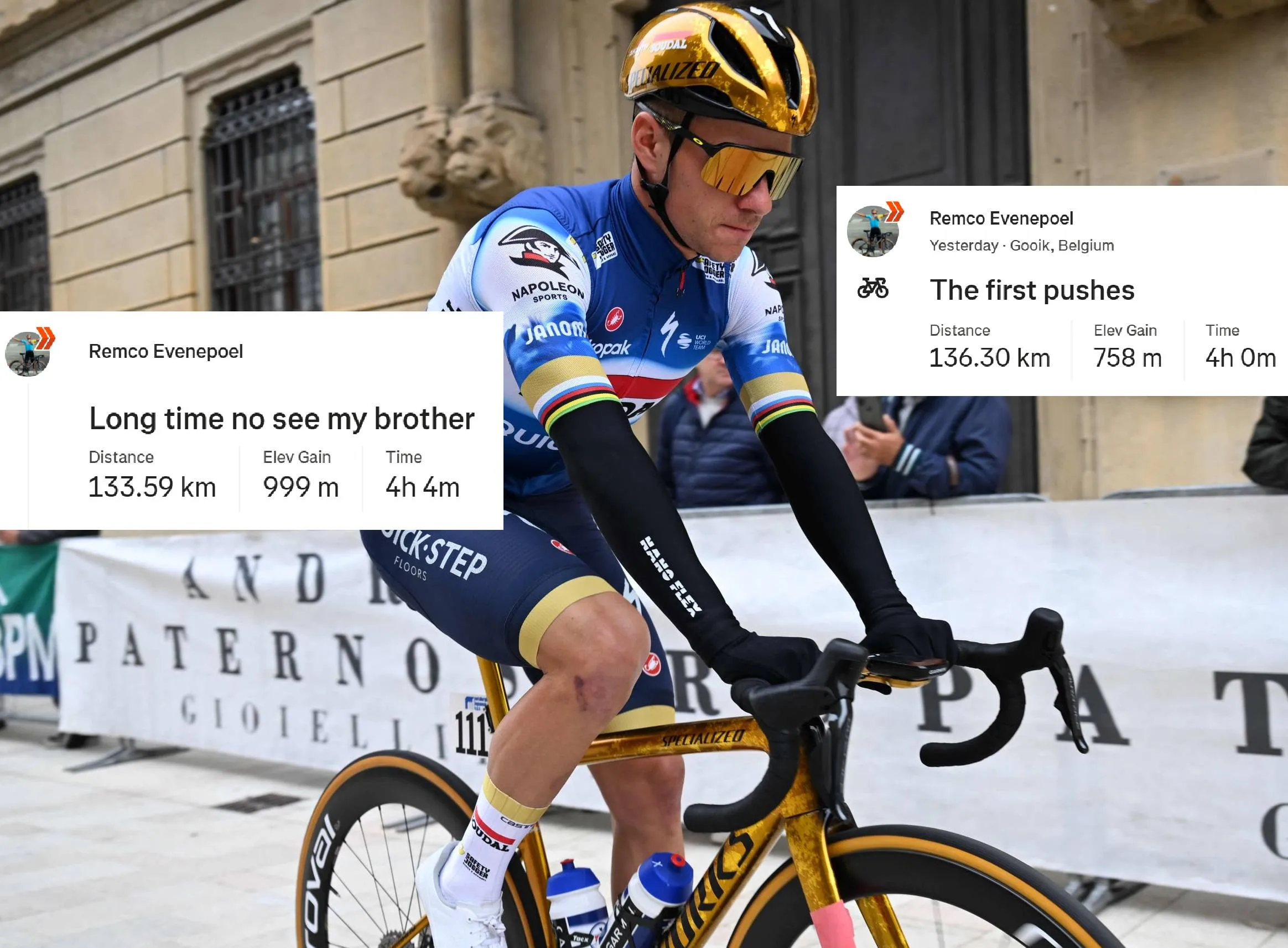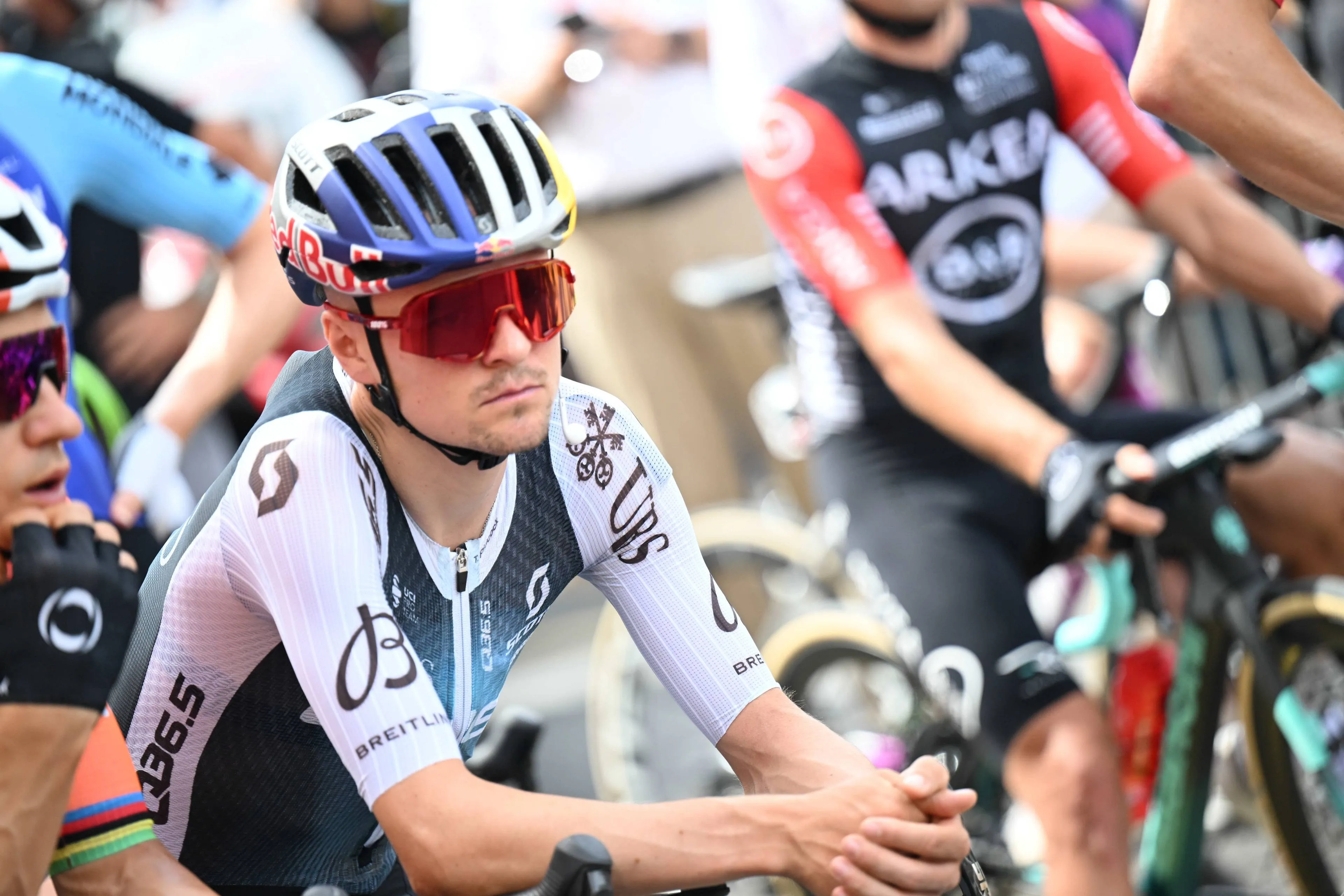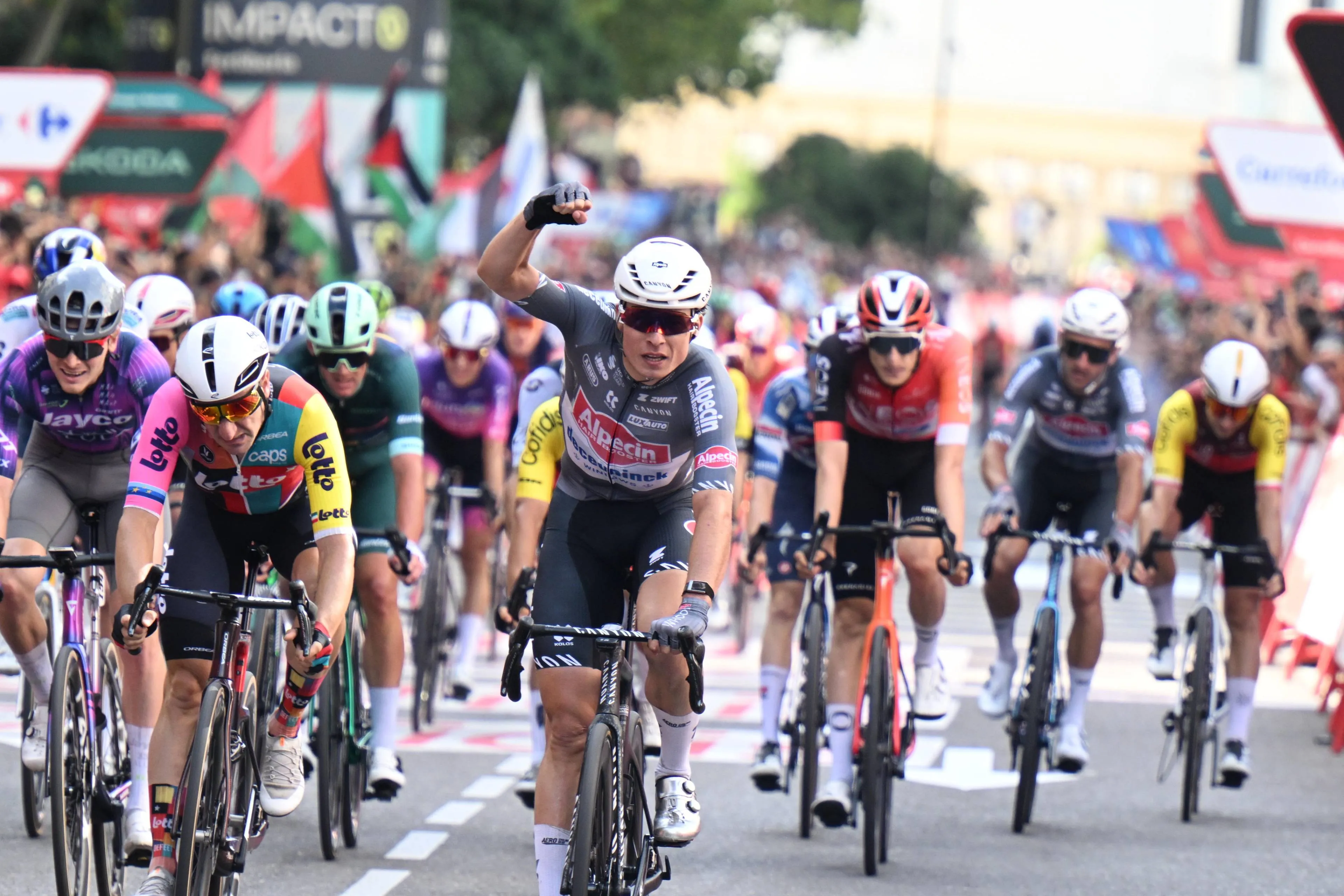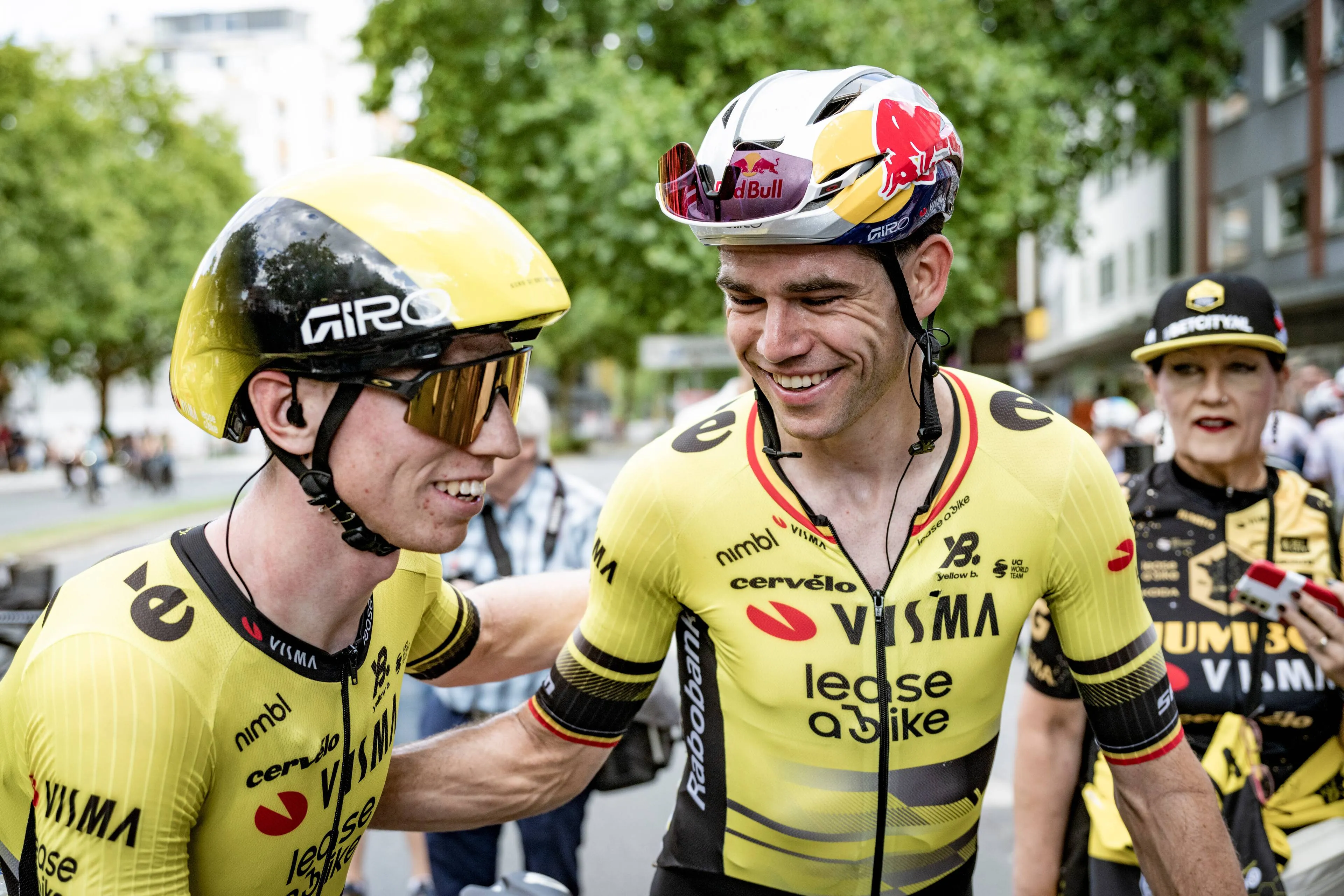ANALYSIS: How quickly can we expect Remco Evenepoel to return to his golden best?
CyclingFriday, 21 February 2025 at 17:35

Remco Evenepoel’s 2024 season was certainly one to remember. In fact, if hadn’t have been for Tadej Pogacar, he would probably
have comfortably been the rider of the year for 2024.
On his Tour de France debut, he finished third overall and
won the white jersey as the best young rider, alongside securing a stage win
with a time trial. His summer of success continued in Paris, where he etched
his name into the history books by becoming the first male cyclist to win both
the Olympic road race and the time trial at the same Games.
Read also
He rounded off the season with yet another milestone,
claiming his second world time trial title in Zurich in September. These
performances cemented his reputation as one of the most exciting talents on the
planet, capable of winning grand tours and one day races alike.
However, his incredible momentum was abruptly halted in
December 2024 when he suffered a serious accident while training in Belgium.
Evenepoel collided with the open door of a postal van in Oetingen, resulting in
fractures to his rib, right shoulder blade, and right hand.
Its now been just over two months since that incident, and
in the last week the Belgian has started to upload his rides to Strava. Slowly,
but surely, he’s ramping up the miles again.
But how quickly can we expect to see the Evenepoel of last
summer?
Read also
How quickly can he recover?
The injuries raised immediate concerns about his ability to
return to top form for the 2025 season. The timing of the crash was
particularly disruptive, occurring in the off-season when most of his rivals
would either have been enjoying some well deserved rest or starting their
training plans for the new year. With Evenepoel already having spent around two
months off the bike, questions have arisen about whether he will be able to
rebuild his fitness and compete at the same level as before in 2025.
The injuries sustained by Evenepoel will have multiple
implications. Firstly, his physical recovery will have required extensive
rehabilitation. Fractures, particularly in key areas like the shoulder blade,
present significant challenges for a cyclist. The scapula plays a crucial role
in upper body stability, bike handling, and sprinting, meaning Evenepoel may
have to adapt his riding position and technique as he returns to training.
Read also
Remember,
when Evenepoel returned from his crash last year, he reported stiffness in his
shoulder for quite some time. The combination of shoulder, rib, and hand
fractures mean he won’t have even been able to ride on the rollers, and so his
cycling fitness will have dripped away.
Beyond the physical toll, the mental aspect of recovery
cannot be overlooked. Evenepoel has experienced serious crashes before, most
notably his horrific fall at Il Lombardia in 2020, where he suffered a pelvic
fracture. He managed to return from that injury and eventually re-establish
himself among the world’s best, winning the Vuelta a Espana and a world
championship in 2022.
Read also
However, every major crash presents new psychological
hurdles. The trauma of colliding with a vehicle while training may make
Evenepoel more cautious on the road, particularly during training rides in
similar environments. Although his experience returning from injuries before
can be seen as a positive, the Belgian will be desperate to not have to go
through this process again for a long time.
Can he win in 2025?
The extent to which Evenepoel can return to top form in 2025
will depend on multiple factors, including the quality of his rehabilitation,
the time frame of his recovery, and his ability to rebuild race fitness before
key events such as the Tour de France. Historically, cycling has seen several
elite riders suffer serious injuries in the off-season or early in the year,
only to make remarkable comebacks within the same season or shortly thereafter.
Let’s take a look at a few examples of these to gain an understanding of how
quickly we can expect to see Evenepoel back to his best.
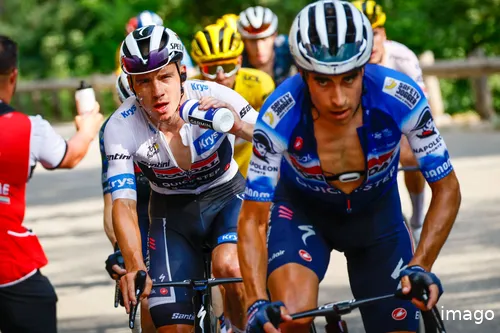
Will Evenepoel be back to his best in 2025?
One of the most famous examples is that of Mathieu van der
Poel, who struggled with severe back problems in late 2021. The Dutch rider was
forced to take an extended break, missing a significant portion of the
cyclocross season and delaying his return to road racing. After months of
rehabilitation, van der Poel made a sensational comeback in March 2022,
finishing third at Milano-Sanremo.
He then went on to win both the Settimana Internazionale di
Coppi e Bartali and Dwars door Vlaanderen before taking a dramatic victory at
the Tour of Flanders in April. His ability to quickly regain top form after
such a disruptive injury highlighted the importance of structured recovery and
intelligent race selection. If Evenepoel follows a similar path, gradually
reintroducing himself to competition before targeting a major objective, he
could still achieve great success in 2025 despite his disrupted off season.
Read also
Another interesting case is that of Annemiek van Vleuten,
whose career has been defined by recovering from setbacks. In August 2016,
while leading the Olympic road race, van Vleuten suffered a horrifying crash
that left her with three lumbar spinal fractures and a severe concussion.
It was one of the nastiest crashes to watch live, and many
feared her career was in jeopardy, but she made an astonishing recovery,
returning to competition within weeks. Just a month later, she won the Belgium
Tour, proving that even the most devastating injuries can be overcome with the
right approach. Over the years, van Vleuten continued to defy expectations,
winning multiple Grand Tours and world championships after suffering injuries
that would have sidelined most athletes for much longer.
Perhaps the most relevant example to Evenepoel’s situation
is Fabio Jakobsen’s incredible return from a near-fatal crash. In August 2020,
during the Tour de Pologne, Jakobsen was involved in a high-speed crash that
resulted in severe head and facial injuries, including a fractured skull, brain
trauma, and extensive damage to his jaw.
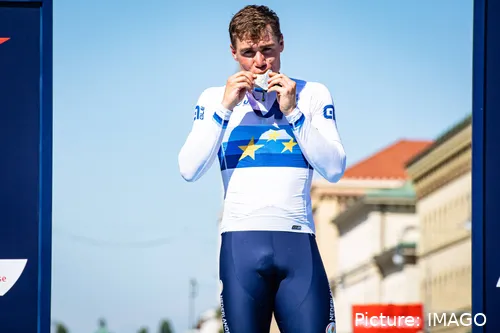
Fabio Jakobsen recovered from horrific injuries to became a Tour de France stage winner
After spending days in a medically induced coma and
undergoing multiple surgeries, he faced a long and uncertain road to recovery.
Remarkably, by 2021, Jakobsen had not only returned to racing but had
re-established himself as one of the best sprinters in the world. He won three
stages at the Vuelta a Espana and secured the green jersey, making it one of
the most inspiring comebacks in modern cycling history. And the comeback was
complete in 2022, when Jakobsen picked up his first ever Tour de France stage win.
While Jakobsen’s injuries were even more severe than
Evenepoel’s, his return demonstrated that even when pushed to the very brink,
professional cyclists are cut from the different cloth and have superhuman
powers of recovery.
Read also
Good news for Remco?
Yes, Evenepoel can take confidence from these cases, but his
comeback will depend on several key factors. One advantage he has is the level
of medical care and recovery resources available to him through a team like Soudal
- Quick-Step.
Modern sports medicine and recovering has advanced significantly,
allowing athletes to recover from injuries faster and more effectively than in
previous decades. Access to expert physiotherapists, nutritionists, and sports
psychologists will all play a role in ensuring he returns to competition in the
best possible condition.
Read also
Another critical aspect is how he structures his return to
racing. Van der Poel, van Vleuten, and Jakobsen all eased their way back into
competition before targeting major wins. Evenepoel will need to take a similar
approach, carefully selecting lower-pressure races to regain his confidence and
race fitness before attempting to compete at the highest level.
A rushed return
could increase the risk of re-injury or prevent him from reaching his peak at
key moments in the season, and that’s the last thing Remco needs if he is to
close the gap to Pogacar and Vingegaard.
Mentally, Evenepoel’s history suggests he has the strength
required to overcome setbacks. His 2020 Il Lombardia crash was far worse than
his late 2024 incident, and he will undoubtedly take comfort in that. However,
every injury is different, and he will need to manage both his physical and
psychological recovery carefully to ensure he does not suffer any lingering
effects. A crash-less 2025 is of the upmost importance for Evenepoel.
Read also
As fans, perhaps we need to give Evenepoel time. Too often,
fans of cycling and other sports expect the stars to immediately return to
their best after a lengthy lay off. Whilst they may be super human, they are
still human!
Just remember, Evenepoel looked a shell of himself when
returning from injury at the Dauphine last June. Three weeks later at the Tour,
he was in the form of his life.
Ultimately, history has shown that great cyclists can
overcome major setbacks and still achieve remarkable success. Evenepoel has
already demonstrated that he belongs in this category, and if he follows the
example of riders like van der Poel, van Vleuten, and Jakobsen, he has a strong
chance of making a full recovery and returning to win at the highest level in
2025.
claps 1visitors 1
Just in
Popular news
Latest comments
- Great champion Remco but his profile is more suitable for Ardennes-like races and tour with no very hard climbs. Not only Tadej and Vingegaard, there are a lot of younger cyclists (del Toro, Ayuso, maybe Seixas, Nordhagen and others) that will soon be big GC boys.
 maria2024202418-02-2026
maria2024202418-02-2026 - Evenopoel 1st real test, and he failedZamorano18-02-2026
- Remco is not the natural climber that riders like Tadej or Jonas are, no matter how much he trains and prepares for it. Yes, you can TT your way up moderately steep hills, but when the gradient gets super steep, he just can't keep up.
 santiagobenites18-02-2026
santiagobenites18-02-2026 - So against the better riders and a long mountain, Remco cracked. Sorry but way away from Pog and Jonasabstractengineer18-02-2026
- “I was portrayed as the devil" Bruyneel was really a talented team manager. His minor flaws: "coordinated, well-funded, and sophisticated doping regime" "hand-in-hand in implementing the team-wide doping programme" "was involved in trafficking and administering prohibited substances and methods, including EPO, blood transfusions, testosterone, human growth hormone, and cortisone. Teammates testified that nothing significant happened without Bruyneel's knowledge and approval." "fostered an environment where doping was considered a "fact of life" and necessary for success, effectively making it a condition of survival on the team. He also participated in or assisted with the cover-up of positive tests and doping violations." Those quotes show Bruyneel's true talent.Cyclingnut18-02-2026
- Fed up hearing "their" voicesslappers6618-02-2026
- When you join Ineos , learning , time , no pressure go out of the windowabstractengineer18-02-2026
- The UCI screws up againcaptmike18-02-2026
- No matter what people say - I'll watch it. And I bet all the complainers will do it too....averagecyclist18-02-2026
- Exactly what I'm thinking about it. Moreover Van Glis had a lot of time to rethink his situation but decided to stay where he was.averagecyclist18-02-2026
Loading
Write a comment
